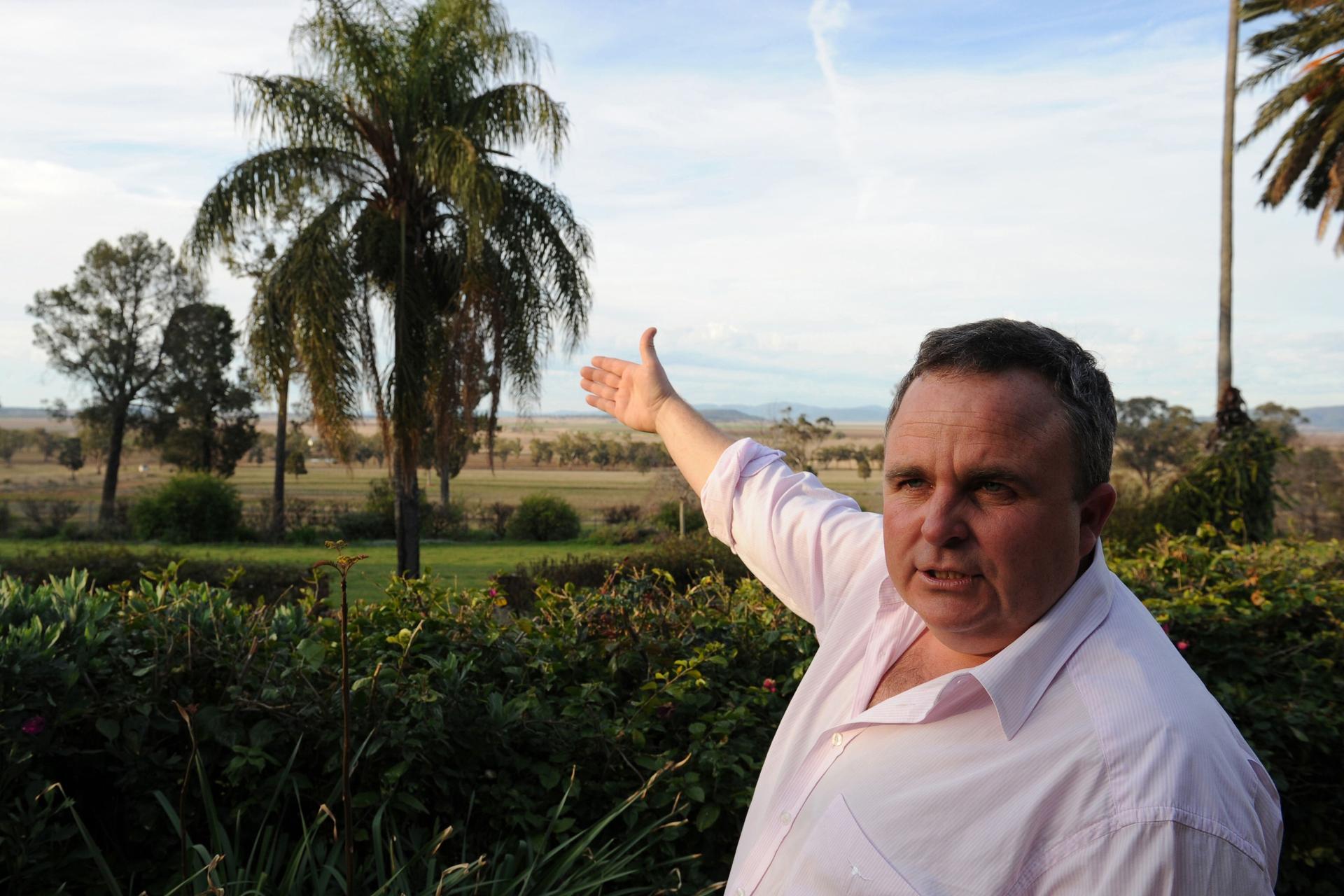Australian lawmakers pass mining tax: will African and South American nations follow?
Farmer Tim Duddy is locked in a bitter legal battle with a large Chinese mining company that holds the exploration licence over the prime agricultural land.
It's not quite the tax we were promised — it's certainly not a "super profits" tax.
Nonetheless, it's a tax, and supporters say it will go some way to ensuring that Australia's booming mining industry — 80 percent of which is foreign owned — gives back to the country that made them super rich.
The Australian government's plan to impose a 30 percent tax on the iron ore and coal sectors has cleared its biggest political hurdle, with legislation passed in parliament after some last-minute political deal making.
The "Minerals Resource Rent Tax," to start on July 1, 2012, is expected to generate about $12 billion to 2014, which the government says will be used to pay for a company tax cut and to boost pensions. Some will be spent on improving infrastructure in regional Australia, where most mines are operating.
In other words, Treasurer Wayne Swan reportedly said, all Australians will share in the benefits from the country's non-renewable resources. "This is a way in which all Australians share in the bounty of the mining boom," Treasurer Wayne Swan told parliament, according to The Australian newspaper..
The tax had been opposed by Australia's central-right opposition party on the basis that it was, well, a tax. For obvious reasons the 30 or so mining companies that will have to pay it are none too happy.
Especially the small- to medium-sized companies, who say the tax favors "global" miners, according to Reuters, even though those global miners — BHP Billiton , Rio Tinto and Xstrata — will pay 80 percent of the tax.
The tax, which has other commodity-dependent nations in South America and Africa talking, Reuters reports, is a "major victory for Prime Minister Julia Gillard's Labor Party after 18 months of acrimonious debate that brought down former prime minister Kevin Rudd.'
His original plan to tax mining companies 40 percent was so unpopular with influential mining industry lobby that it is widely regarded to have led to his demise as the party's — and country's — leader.
Respected economics analyst Ross Gittins, writing in The Sydney Morning Herald on Tuesday, applauded the passage of the legislation.
Australia's finite natural resources belong to Australians, Gittins argues, not just the quickest miner to pull them out of the ground and flog them to the Chinese.
"We must ensure we end up with something to show for this boom and that too much of the huge profit being made doesn't just end up in the hands of the mining industry's owners (about 80 per cent of whom are foreign). After all, the minerals they're mining are owned by all Australians, not the miners."
Besides, he writes, all the "fuss" about Australia's mining boom "has left many Australians with a quite exaggerated impression of the size of our mining sector."
While polling indicates that most Australians think mining accounts for 35 percent of the nation's GDP (gross domestic product), in fact it only accounts for 10 percent.
Also, mining — these days, a heavily automated activity — directly employs only 2 percent of the population, despite creating 10 percent of national income. A small point, he qualifies, as the industry contributes markedly to indirect employment, in industries such as agriculture and manufacturing, and in the many service industries, such as health care, construction, hospitality and transport.
The Minerals Resource Rent Tax legislation must pass through the Senate in early 2012, but the government reportedly has enough support to ensure it becomes law.
Every day, reporters and producers at The World are hard at work bringing you human-centered news from across the globe. But we can’t do it without you. We need your support to ensure we can continue this work for another year.
Make a gift today, and you’ll help us unlock a matching gift of $67,000!
